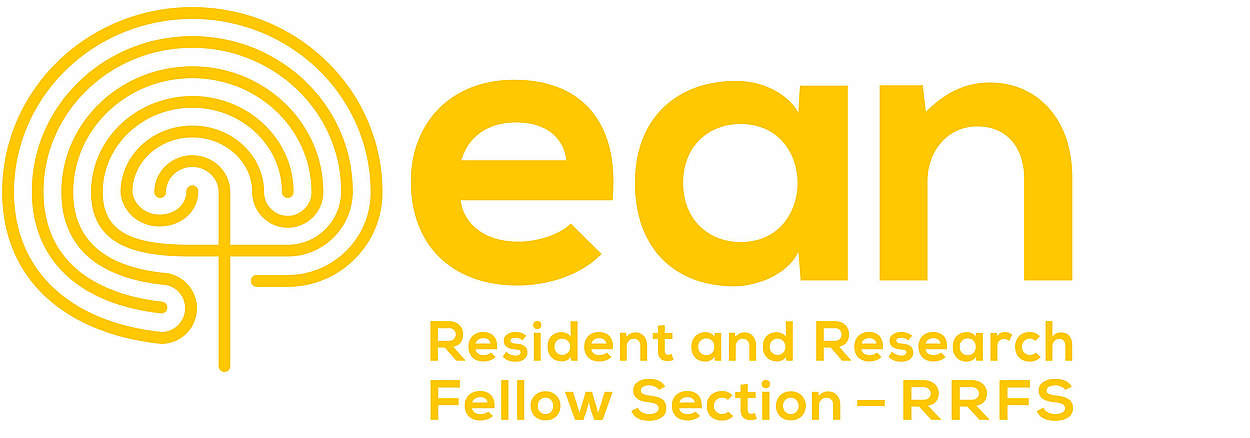Resident and Research Fellow Section (RRFS)
The EAN "Residents and Research Fellows Section (RRFS)" is a network for support and communication among junior neurologists, that provides a platform to spread information about calls for international exchange programmes.
The main objectives are to:
- Represent, inform, and help neurology trainees at an international level, including those seeking clinical or research opportunities abroad
- Improve the training of neurologists by learning from past experiences and practices in different countries
- Connect young neurologists to facilitate clinical exchange and mutual support
- Serve as a link between generations of neurologists
The Residents and Research Fellows Section excels in keeping their members connected.
At the EAN Congress the RRFS has their own General Assembly during which most important information for the Section Members are shared and the new RRFS Office composition is announced.
To foster the growth of the section’s potential the RRFS Representatives Network gathers representatives to EAN committees, task forces and other working groups, as well as National Representatives from all the European National Neurological Societies.
Additionally, the RRFS is actively engaged in the eanNews operations. The "education corner", is a dedicated space, specifically curated to important topics for trainees and fellows in neurology.
The activities of the RRFS are becoming an integral part of neurology activities in Europe. The RRFS organizes several activities during the EAN congress, for example, a local Hospital Visit followed by an RRFS Networking Event to give young neurologists and trainees from different cultural backgrounds the opportunity to connect, and exchange their professional and personal experiences.
Helping colleagues start their international scientific pursuits is an important task for the RRFS. Appointed Representatives speak for RRFS members in EAN’s Panels. Besides other responsibilities, these panels contribute to set guidelines, and design the programme of the EAN congress. Furthermore, they nominate junior colleagues (their representatives and members of the Panels) for abstract reviewing and poster co-chairing.
The RRFS is also actively involved in the development of e-learning material, such as the EAN Campus. This initiative is s an innovative, new eLearning platform with the content coming 100% from EAN, and all EAN members are given free access.
There is a variety of resources accessible for RRFS members such as: Fellowships and Funding opportunities, Schools and other educational events, and several chances for their career development.
If you are a medical doctor and are currently working as a resident in Neurology, research fellow, PHD student or neurologist with not more than 3 years of practice after completion of your last degree (MD, PhD, neurology specialst or equivalent), you are welcome to apply for EAN-RRFS membership!
All information on how to apply for membership can be found in the membership area of the EAN website.
RRFS does have representatives in the following committees: Education Committee, Teaching Course SubCommittee, Ethics and Quality Task Force, Communication Committee, Scientific Committee and in several EAN panels. If you would like to represent RRFS on one of the panels, please read the information below.
As a delegate in EAN Panels, junior colleagues can be involved in the development of neurological guideline to provide evidence-based guidance for clinical neurologists and other health care professionals and in congress abstracts review.
